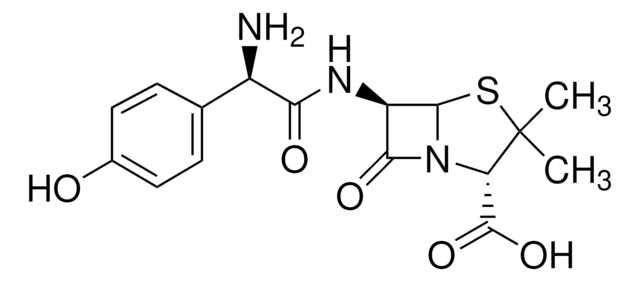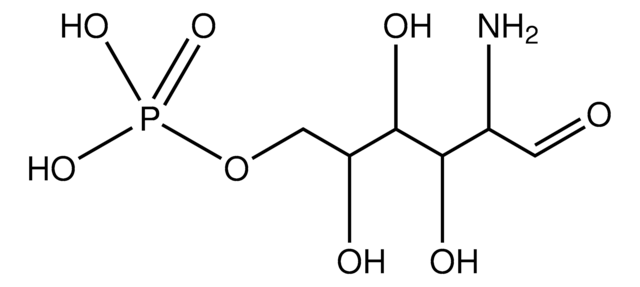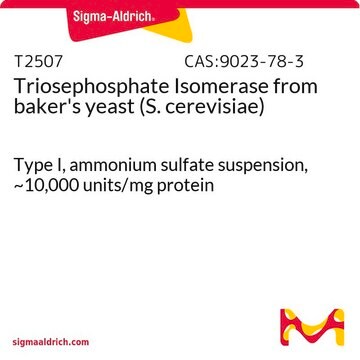F1502
D-Fructose 6-phosphate dipotassium salt
≥97% (enzymatic), amorphous powder
About This Item
Recommended Products
biological source
synthetic (inorganic)
Quality Level
assay
≥97% (enzymatic)
form
amorphous powder
impurities
≤0.05 mol % fructose 1,6-diphosphate
≤1.5 mol % glucose 6-phosphate
color
white to off-white
solubility
H2O: 100 mg/mL, clear to slightly hazy, colorless to faintly yellow
cation traces
K: 20.3-26.2% (dry basis)
Storage temp.
−20°C
SMILES string
[K+].[K+].OCC1(O)O[C@H](COP([O-])([O-])=O)[C@@H](O)[C@@H]1O
InChI
1S/C6H13O9P.2K/c7-2-6(10)5(9)4(8)3(15-6)1-14-16(11,12)13;;/h3-5,7-10H,1-2H2,(H2,11,12,13);;/q;2*+1/p-2/t3-,4-,5+,6?;;/m1../s1
Inchi Key
UNAFCPBHNZYEIY-UHOQFTJOSA-L
Application
Other Notes
Storage Class
11 - Combustible Solids
wgk_germany
WGK 3
flash_point_f
Not applicable
flash_point_c
Not applicable
Choose from one of the most recent versions:
Certificates of Analysis (COA)
Don't see the Right Version?
If you require a particular version, you can look up a specific certificate by the Lot or Batch number.
Already Own This Product?
Find documentation for the products that you have recently purchased in the Document Library.
Customers Also Viewed
Articles
Review the 10 steps of glycolysis in the Embden-Meyerhof-Parnas glycolytic pathway. Easily compare reaction stages and buy the enzymes for your life science research.
Our team of scientists has experience in all areas of research including Life Science, Material Science, Chemical Synthesis, Chromatography, Analytical and many others.
Contact Technical Service











